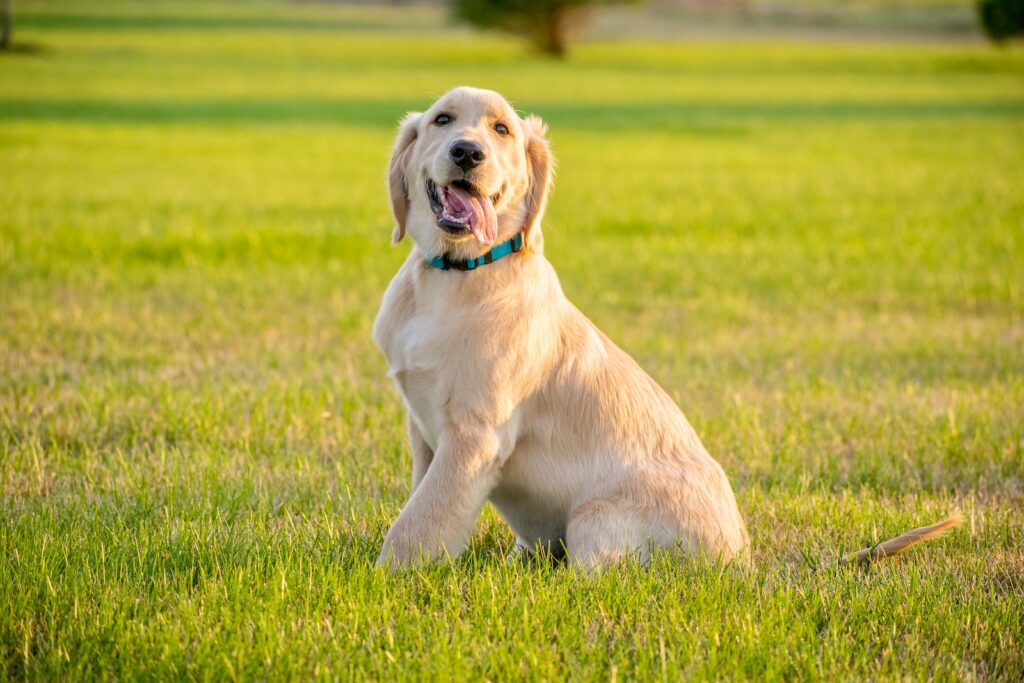Can Dogs Eat Peas? — Yes, They Can
Peas can be a healthy addition to a dog’s diet when served in moderation. They are safe for dogs to consume and can provide several nutritional benefits. However, it is important to prepare and serve peas appropriately to ensure your dog’s safety and well-being.
Can Puppies Eat Peas?
Yes, puppies can eat peas, but it is essential to introduce peas gradually into their diet. Start with small portions and monitor how your puppy reacts. If any digestive issues or allergic reactions occur, it is best to consult a veterinarian.
Things to consider when feeding peas to puppies?
When feeding peas to puppies, it is crucial to cook them thoroughly and mash or blend them to make them easily digestible. Additionally, always introduce new foods slowly and carefully observe any adverse reactions in your puppy.
Nutritional Benefits of Peas for Dogs — Why Peas are Good for Dogs? / Why Dogs can have peas
1. Rich in Vitamins and Minerals
Peas are packed with essential vitamins such as vitamin A, vitamin C, and vitamin K. They also contain minerals like potassium, iron, and magnesium, which are beneficial for your dog’s overall health and wellbeing.
2. High in Fiber
Peas are an excellent source of dietary fiber, which aids digestion and helps regulate bowel movements. This can be especially beneficial for dogs with digestive issues or constipation.
3. Low in Calories
Peas are relatively low in calories compared to other treats, making them a healthy option for dogs who are watching their weight or are prone to obesity.
4. Provides Antioxidant Benefits
Peas contain antioxidants that can help neutralize harmful free radicals in your dog’s body, reducing the risk of chronic diseases and promoting overall wellness.
5. Supports Energy and Muscle Health
The carbohydrates present in peas provide a sustainable source of energy for dogs. Additionally, the protein content in peas contributes to muscle development and maintenance.
Potential Allergies: Can Dogs Be Allergic to Peas?
While allergies to peas are relatively rare in dogs, some dogs may be sensitive to them. It is essential to monitor your dog’s reaction when introducing peas and watch out for any signs of allergic reactions such as itching, vomiting, or diarrhea. If you notice any adverse symptoms, consult your veterinarian.
Symptoms of Pea Allergies in Dogs
- Itching and scratching
- Hives or rash
- Gastrointestinal upset
What to Do If Your Dog Shows Symptoms?
- If your dog exhibits any allergic symptoms after consuming peas, discontinue feeding them peas immediately.
- Contact your veterinarian for guidance, as they can suggest suitable alternatives and offer appropriate treatment if necessary.
- Keep an eye on your dog’s condition and report any worsening symptoms to your veterinarian.
Recommended Amount: How Much Peas Can a Dog Consume?
The recommended amount of peas a dog can consume depends on their size, weight, and individual dietary requirements. As a general guideline, treats such as peas should make up no more than 10% of your dog’s daily caloric intake. However, it is always best to consult with your veterinarian to determine the ideal portion size for your specific dog.
Things to Consider When Feeding Peas to Dogs
When feeding peas to your dog, ensure they are fully cooked and soft to aid digestion. It is also important to avoid seasoning the peas with any harmful ingredients such as garlic, onions, or excessive salt. Moderation is key, and always keep an eye on your dog for any adverse reactions.
How to Feed Peas to Dogs: A Quick Guide
Introducing peas into your dog’s diet can be a delightful and healthy experience. Here are three easy recipes that incorporate peas:
Peas and Chicken Doggy Delight
Ingredients:
- 1 cup of cooked peas
- 1 cup of cooked and shredded chicken
- 1/4 cup of low-sodium chicken broth
Instructions:
- In a mixing bowl, combine the cooked peas and shredded chicken.
- Gradually add the chicken broth to the mixture and mix well until all ingredients are evenly combined.
- Serve the doggy delight in an appropriate portion size for your dog’s size and enjoy!
Beef and Pea Stew
Ingredients:
- 1 cup of cooked peas
- 1 cup of cooked and diced beef
- 1/4 cup of beef broth
- 1/4 cup of diced carrots
Instructions:
- In a saucepan, combine the cooked peas, diced beef, and beef broth.
- Heat the mixture over low heat and simmer for 10–15 minutes to allow the flavors to meld together.
- Add the diced carrots and continue cooking for an additional 5 minutes.
- Allow the stew to cool before serving it to your dog.
Veggie Crunch Treats
Ingredients:
- 1 cup of frozen peas
- 1/2 cup of grated carrot
- 1/4 cup of flour (preferably whole wheat)
- 1 egg
Instructions:
- Preheat your oven to 350°F (175°C) and line a baking sheet with parchment paper.
- In a mixing bowl, combine the frozen peas, grated carrot, flour, and egg.
- Mix the ingredients until well combined.
- Drop small spoonfuls of the mixture onto the prepared baking sheet, spacing them apart.
- Flatten each spoonful with the back of a fork to create a cookie shape.
- Bake for 15–18 minutes or until the treats are golden brown and crispy.
- Allow the treats to cool completely before offering them to your dog.
Conclusion
Peas can be a healthy addition to your dog’s diet, providing essential nutrients and fiber. While dogs can consume peas without any issues, it is important to introduce them gradually and in moderation. Always monitor your dog for any allergic reactions or digestive issues. Following these guidelines, you can safely incorporate peas into your dog’s meals or offer them as delicious homemade treats.






